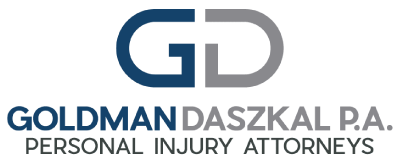Accidents involving uninsured motorists happen more frequently than you might expect. Despite laws stating that drivers must maintain state minimums for car insurance, uninsured drivers still take to the roads in Florida.
Florida has not enforced penalties for driving uninsured, which allows motorists to drive without insurance or with minimal coverage. The state ranks sixth for the highest percentage (20.4 percent) of uninsured drivers according to the Insurance Information Institute.
With so many uninsured drivers on the roads, all Floridians must know the proper steps to take if they are involved in an accident with an uninsured motorist.
Florida Car Insurance Laws
To legally drive in Florida, all drivers must carry state minimum insurance coverage. This provides coverage for the driver and their vehicle in case of an accident. But it also helps limit an individual’s liability in the case of a serious accident where the victim pursues a lawsuit.
The state requires that all drivers carry car insurance that includes the following limits:
- Personal Injury protection coverage of $10,000. In Florida, this is known as personal injury protection (PIP).
- Property damage coverage of at least $10,000.
Because Florida is a no-fault state, many drivers don’t realize they can be personally liable for serious injuries they cause in an accident. That might be one reason why drivers choose to take the risk and drive without insurance.
They think it will only impact them in not having injury or property coverage for themselves in the case of an accident since each driver files financial damages against their own insurance.
What Should I Do If an Uninsured Driver Hits Me?
Accidents with uninsured drivers are even more stressful than those with drivers who carry the required coverage. But take a deep breath and still go through the important process of documenting the accident.
Here are the steps you should take after a car accident:
- If it’s apparent the other vehicle is not going to stop, document the license plate, make, and model of the car. This will make it easier for law enforcement to locate the individual who was driving the car. Sadly, hit and runs are more common when the driver is uninsured, as they don’t want to face the consequences of driving without insurance.
- Call 9-1-1. Getting emergency responders on the scene will help you document the accident and locate the driver if they don’t stay on the scene.
- If the driver stays on the scene, get a photo of their license and personal information. You might need this later to file a lawsuit against the driver directly.
- Get a medical exam even if you think you feel OK because you might not realize you’re injured from the accident.
Ways to Recover Financially After an Accident With an Uninsured Motorist
You have a few options to seek financial restitution after an accident with an uninsured driver in Florida.
The first option is to file a lawsuit against your own insurance policy to seek damages above the $10,000 in PIP coverage from your auto insurance if you have uninsured/underinsured motorist coverage.
The second option is to sue the uninsured driver directly. When you sue an individual, the courts will review the person’s assets to discover the best course of action. This might include any of the following.
- Setting up a payment plan
- Garnishing the person’s wages
- Finding hidden assets that you can freeze or put a lien on until you recover the settlement amount
- Requiring that the person pay the settlement from money available in their bank accounts
While personal injury lawsuits with uninsured motorists are more complicated, they still provide a way to avoid carrying the financial burden of an accident alone.
Your attorney might be able to complete a background check to look for the uninsured driver’s assets. Knowing whether the driver has assets you can pursue can guide you in knowing the best next steps for your case.
If a Florida uninsured driver hit you, schedule a free consultation with Goldman & Daszkal now to learn your options.
